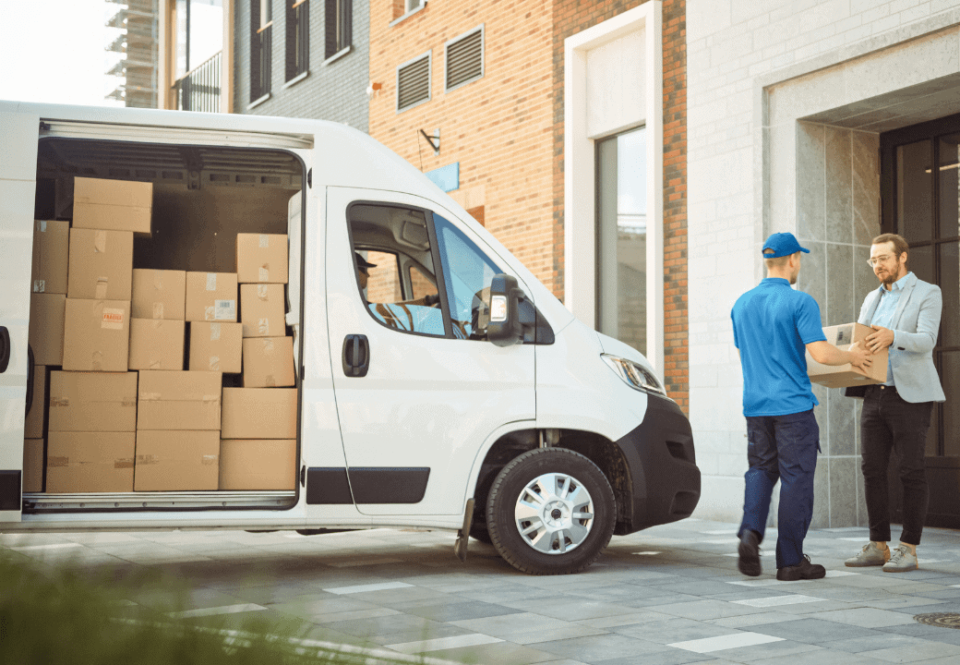Shipping dangerous goods can be tricky. You need to be careful and follow special rules. Sometimes, you might wonder if you need a special courier for these items.
You should use specialised dangerous goods couriers when shipping items that are flammable, toxic, or explosive. These couriers have the right training and equipment to handle risky materials safely. They know all the rules and can make sure your shipment follows the law.
When choosing a dangerous goods courier, look for one with proper licences and certifications. Check if they have experience with your type of goods. It’s also good to ask about their safety record and insurance coverage. A great courier will answer your questions and help you pack your items correctly.
Understanding Dangerous Goods
Dangerous goods are items that can pose risks to health, safety, property, or the environment. These materials need special care during transport. Rules and classifications help keep everyone safe when shipping these items.
Categories of Dangerous Goods
Dangerous goods fall into nine main classes:
- Explosives
- Gases
- Flammable liquids
- Flammable solids
- Oxidising substances
- Toxic substances
- Radioactive materials
- Corrosives
- Miscellaneous dangerous goods
Each class has specific handling rules. For example, explosives need extra care to avoid accidental detonation. Gases must be in proper containers to prevent leaks. Flammable liquids need special packaging to stop spills and fires.
Regulations and Compliance
Many rules govern dangerous goods transport. The main ones are:
- UN Recommendations on the Transport of Dangerous Goods
- International Maritime Dangerous Goods (IMDG) Code
- International Air Transport Association (IATA) Dangerous Goods Regulations
These rules set standards for packaging, labelling, and handling. They also cover training for workers who deal with dangerous goods.
You must follow these rules when shipping dangerous items. This means using the right labels, packaging, and documents. It also means choosing carriers who know how to handle these goods safely.
Breaking these rules can lead to fines or legal trouble. More importantly, it can put people and the environment at risk.
Identifying the Need for Specialised Couriers
Dangerous goods require extra care and expertise during transport. Knowing when to use specialised couriers can keep you safe and compliant with regulations. Let’s look at key factors to consider.
Transportation Challenges
Some items pose unique shipping risks. These include chemicals, batteries, and radioactive materials. Regular couriers often can’t handle them safely.
Dangerous goods may need special packaging. They might also require temperature control or careful handling. Standard shipping methods might not meet these needs.
Some items face strict rules for air or sea transport. You’ll need couriers who know these laws inside out. They can make sure your goods reach their destination without issues.
Risk Assessment
Before shipping, think about what could go wrong. Could your items leak, catch fire, or explode? If so, you need experts to move them.
Look at your shipment’s value and importance. High-value or time-sensitive goods might need extra protection. Specialised couriers offer tracking and security features.
Check if your insurance covers dangerous goods transport. Many policies don’t. Specialised couriers often provide better coverage for risky items.
Think about your company’s reputation too. Using expert couriers shows you take safety seriously. It can protect your brand if something goes wrong.
Selecting a Dangerous Goods Courier
Choosing the right courier for dangerous goods is crucial for safety and compliance. Look for key factors like proper certifications, strong safety measures, and reliable customer service.
Certifications and Experience
A top-notch dangerous goods courier must have the right certifications. Check if they’re approved by relevant bodies like the Civil Aviation Authority (CAA) or Department for Transport (DfT).
Look for couriers with years of experience in handling hazardous materials. They should know the ins and outs of shipping different types of dangerous goods.
Ask about their staff training programmes. Well-trained employees are vital for the safe transport of risky items.
Safety and Emergency Response
Safety should be a dg courier‘s top priority. Ask about their safety record and accident history. Check if they have proper packaging and labelling systems for dangerous goods. This helps prevent mix-ups and accidents.
Look for couriers with solid emergency plans. They should know exactly what to do if something goes wrong during transport.
Modern tracking systems are a plus. They let you keep an eye on your shipment from start to finish.
Customer Service and Reliability
Good customer service is key when shipping dangerous goods. The courier should be easy to reach and quick to respond to queries.
Look for clear communication about pricing and delivery times. Hidden fees or delays can cause big headaches.
Check reviews from other customers who’ve shipped dangerous goods. This can give you a good idea of the courier’s reliability.
Ask about their claims process. If something does go wrong, you want a courier who’ll sort it out quickly and fairly.

